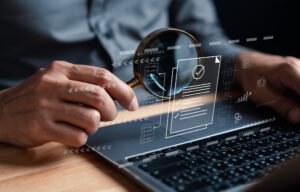Posted by Colin Lambert. Last updated: August 21, 2024
A new study from Coalition Greenwich says corporate treasuries are not paying enough attention to their FX activities, and could greatly enhance performance through the adoption of different practices.
The report, Corporate FX Trading – The Value of Relationships and Execution Quality makes the not-so-startling discovery that by using more digital means of trading, treasuries have an opportunity to save money and reduce risk, but it also investigates the reasons transformation has been slow.
The main problem, according to the report authored by Stephen Bruel, senior analyst in the market structure and technology group at Coalition Greenwich, is that many companies view FX as an ancillary part of their relationship with their banking partners. The report compares practices between corporates and asset managers, analyses how corporates allocate trading volumes among counterparties, and discusses how the shift to electronic trading and digital innovation is transforming corporate FX trading.
The report observes that around half of corporate FX trading volume is allocated to the counterparty on the basis of the broader service the treasury receives, and that considering banks’ complementary services like lending and cash management, in addition to the quality of FX service provided by counterparties, is a big factor.
The report observes that corporate treasuries have access to tools like transaction cost analysis (TCA) to measure the results of individual trades, as well as the performance of the trading desk overall. It adds that can also access increasingly sophisticated algorithmic trading strategies that are adopted by asset managers and other FX market participants.
“In an age of digital innovation companies who are not giving FX the attention it deserves could be leaving real benefits and money on the table,” says Bruel. “Corporates globally should be increasing the focus and resources devoted to FX. They should be encouraging their desks to adopt more advanced tools – the more electronic the trading, the better the data available to analyse execution quality and optimise results.”





